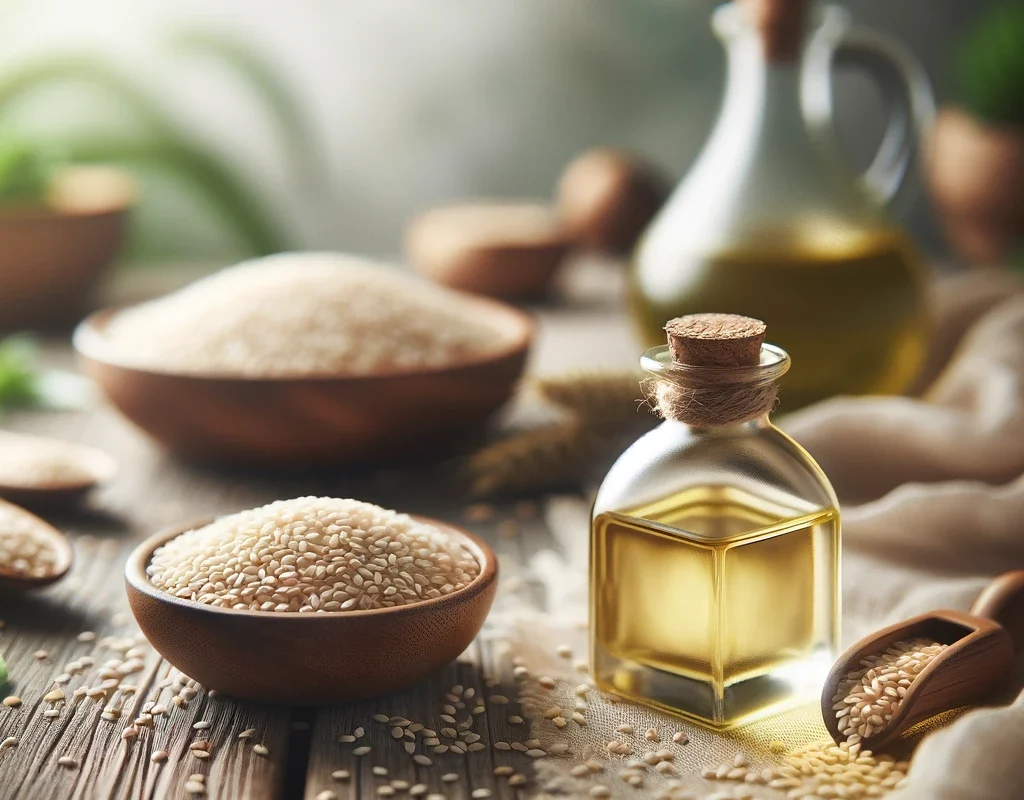Sesame seeds, those tiny, oil-rich seeds that have been used in culinary traditions around the world, are more than just a flavor enhancer. They’re packed with essential nutrients that can play a crucial role in your baby’s growth and development. This article delves into how these seeds can benefit your little one and how you can safely introduce them into their diet. Whether you’re a seasoned parent or a new caregiver, understanding the nutritional potential of sesame seeds can help you make informed choices for your baby’s health.
The use of sesame seeds spans across various cultures and cuisines, reflecting their versatility and health benefits. Not only do they offer a subtle, nutty flavor, but they are also a powerhouse of nutrients essential for your baby’s developmental needs. By incorporating sesame seeds into your baby’s diet, you can contribute positively to their overall health, setting a foundation for healthy eating habits.
Nutritional Profile of Sesame Seeds
Sesame seeds are a remarkable source of important minerals such as calcium, magnesium, and zinc, crucial for a growing baby. Calcium is fundamental for bone development and maintenance, making sesame seeds an excellent dietary addition for your baby’s bone health. Magnesium supports muscle and nerve function, while zinc boosts the immune system, which is vital for young children who are still building their natural defenses.
These seeds are also rich in B vitamins, which are important for energy metabolism and brain development. Additionally, the presence of dietary fiber in sesame seeds can help maintain a healthy digestive system, preventing constipation, which is common in babies as they start solid foods. The nutritional density of sesame seeds makes them an ideal superfood to include in your baby’s diet.
Benefits of Sesame Seeds for Babies
Integrating sesame seeds into your baby’s diet can enhance their immune system, thanks to the seeds’ antioxidant properties. Antioxidants help combat oxidative stress and protect the body’s cells, which is crucial during the early stages of life when your baby’s immune system is still developing. Regular inclusion of sesame seeds can thus help ward off common illnesses and infections.
The high calcium content in sesame seeds is particularly beneficial for developing strong bones and teeth in babies. This is crucial during the early years when bone mass is being built. Furthermore, the fiber in sesame seeds aids in improving digestive health, promoting regular bowel movements and helping to maintain a healthy gut—a fundamental aspect of overall health.
Incorporating Sesame Seeds into Your Baby’s Diet
When considering adding sesame seeds to your baby’s diet, it’s important to start slow and ensure they are age-appropriate. Generally, sesame seeds can be introduced after other basic foods have been accepted, typically around 8 to 10 months of age. It’s crucial to grind or mash sesame seeds into a smooth paste, like tahini, to prevent choking hazards and ensure easier digestion.
You can sprinkle ground sesame seeds on fruit purees or mix tahini into vegetable mashes. Another option is to incorporate them into homemade bread or crackers, suitable for older babies. These methods provide a gentle introduction to sesame seeds while enriching your baby’s meals with nutrients.
Precautions and Considerations
While sesame seeds are nutritious, they are also known allergens. Introduce them to your baby’s diet cautiously, starting with a small amount to monitor for any allergic reactions. Signs of a reaction can include hives, itching, or respiratory difficulties, and if any of these occur, it’s important to consult a healthcare provider immediately.
Additionally, always ensure that the sesame seeds are in a form that your baby can easily consume without risk of choking. This means using forms like tahini or thoroughly ground seeds, especially for younger babies.
Conclusion
Sesame seeds offer a multitude of health benefits that can significantly contribute to your baby’s nutrition. From strengthening their immune system to supporting bone health and enhancing digestive wellness, these seeds are a nutrient-dense addition to any baby’s diet. As you explore the possibilities of incorporating sesame seeds, remember to do so gradually and under the guidance of a pediatrician.




